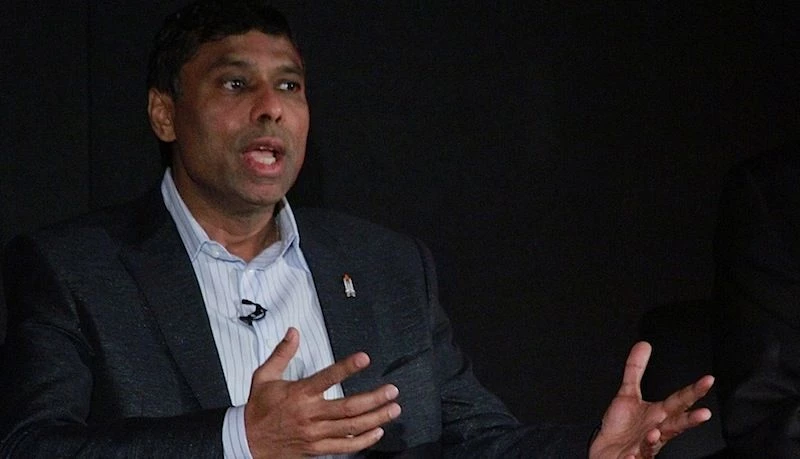
Partner Article
Is education obsolete for new industrial revolution?
Mining asteroids on the moon; background reports on job applicants and internet metasearch. It’s quite a broad portfolio for one entrepreneur, and yet Naveen Jain still finds time for philanthropy and running the World Innovation Institute. Bdaily recently talked $10bn global problems and re-thinking our approach to education with Jain. In part one of our interview, Jain discusses his thoughts on education.
“Often, when people are trying to tackle large global problems, they’re coming from a philanthropic angle. They’re not using the latest technological innovations or the entrepreneurial principles which will serve them in solving the problem,” he says.
“If you look at education, many people think you need more schools; better lighting in schools; better training of teachers, and so on. The problem is that billions of people around the world that have no access to education.
“It’s become very fashionable to say our education system is broken. But the fact is, it’s not. The education system has become obsolete. The education system was fundamentally designed for the industrial era. You taught people certain skills that could be used for their whole life, now exponentially growing technology means that skills being taught can become obsolete within 5-10 years.”
Jain suggests that modern education must comprise “learning-to-learn,” and equip students with the ability to apply facts.
He continues: “Many children have access to smartphones, and therefore they’ve got access to more facts at their fingertips than say, Bill Clinton, in his time as President of one of the most powerful countries in the world.”
Modern problems have become interdisciplinary problems. Jain argues that expert opinion gives incremental change, whereas comprehensive change comes from non-experts.
“Think about a basic life example. A child who can solve some of the most complex strategy problems while playing on World of Warcraft might struggle to do basic Maths in the classroom.”
Part of Jain’s problem with current education models is their supposed “individualistic” focus.
He adds: “It has to be collaborative. At the moment, education teaches us there is one right answer - it’s in the back of the book. If you’ve got two right answers, you’re wrong.
“It also teaches you that if you ask someone else, you’re cheating. But that’s not what happens in the real world. It’s not cheating, it’s called collaboration.”
It’s the building blocks of entrepreneurial thinking, suggests Jain. He believes that an entrepreneurial approach is needed to solve global problems.
“I was at looking at the likes of Warren Buffet, and I just thought these types of guys are so wrong in asking rich people to give 50% of their money,” says Jain.
“Why do you think these people become rich? It’s because they go out and solve a problem. How do you create a $10bn company? Solve a $10bn problem.
“The point is the entrepreneurs become successful because they’re solving the problems. If you ask successful people for 30% of their time, as opposed to 50% of their money, then you have a society that is actually focussed on solving the problem.”
This was posted in Bdaily's Members' News section by Tom Keighley .








 Raising the bar to boost North East growth
Raising the bar to boost North East growth
 Navigating the messy middle of business growth
Navigating the messy middle of business growth
 We must make it easier to hire young people
We must make it easier to hire young people
 Why community-based care is key to NHS' future
Why community-based care is key to NHS' future
 Culture, confidence and creativity in the North East
Culture, confidence and creativity in the North East
 Putting in the groundwork to boost skills
Putting in the groundwork to boost skills
 £100,000 milestone drives forward STEM work
£100,000 milestone drives forward STEM work
 Restoring confidence for the economic road ahead
Restoring confidence for the economic road ahead
 Ready to scale? Buy-and-build offers opportunity
Ready to scale? Buy-and-build offers opportunity
 When will our regional economy grow?
When will our regional economy grow?
 Creating a thriving North East construction sector
Creating a thriving North East construction sector
 Why investors are still backing the North East
Why investors are still backing the North East